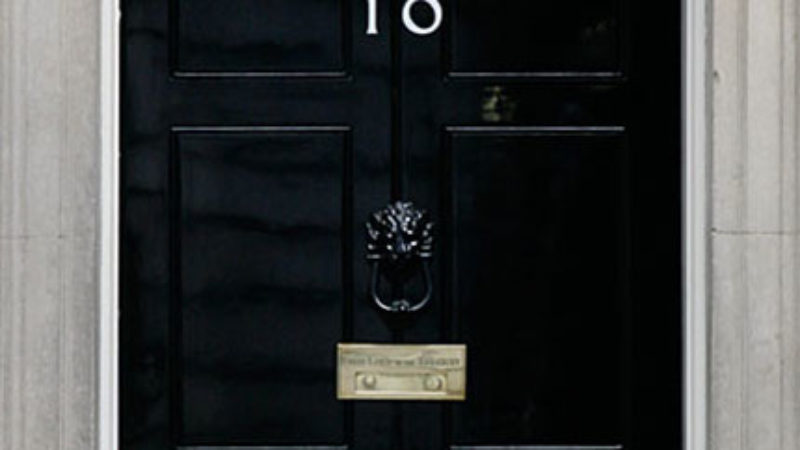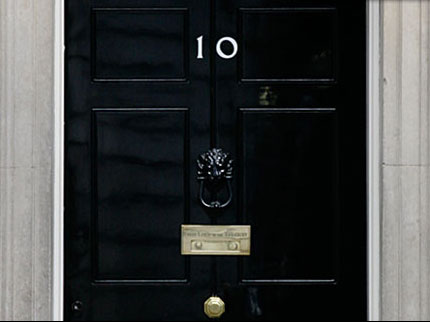
Unless Labour can sustain its current lead in the polls until May (despite the likely swing to an incumbent government in the final weeks before election day), another hung parliament must be among the possible outcomes. Labour needs to prepare for that contingency now. A good starting-point might be to demolish a few myths, such as:
- A hung parliament requires a coalition government.
- The party that wins the most seats is the first to try to form a government.
- If the LibDems (or UKIP or the SNP) hold the balance of power, they will be able to decide whether David Cameron or Ed Miliband shall be prime minister.
- The newly anointed prime minister will have the option of calling a second election later in 2015.
None of these propositions is necessarily true. If Labour forms a minority government dependent on three or more smaller parties to get its legislation through parliament, a formal coalition of all of them, each demanding policy concessions as its price for participating, would be almost impossible to negotiate, and the conduct of government with so many discordant voices in Cabinet would be intolerably difficult. Such situations are commonplace in some European countries where negotiating a multi-party government may take months, but it’s alien to our traditions and would result in virtual paralysis. The Tories have hated having to accommodate even one coalition partner. Either Labour or the Conservatives would almost certainly opt to govern alone, relying on a different ad hoc pattern of support from smaller parties to gain parliamentary approval for each measure.

Moreover the constitutional changes discreetly introduced shortly before the 2010 election (described in detail on LabourList here) require that when elections produce a hung parliament, the incumbent prime minister must not resign until inter-party negotiations produce a clearly viable successor with majority support in the new parliament. (Special circumstances prevented Gordon Brown from complying with this rule in 2010.) In principle therefore Mr Cameron could remain as prime minister and offer parliament a programme for government even if Labour had won the most seats in next May’s elections. The smaller parties would then have to choose between voting against a (politically alluring) Tory-drafted Queen’s Speech, forcing Cameron’s government to resign, or supporting it to allow a Conservative minority government to carry on, at least for a trial period. Rejection of Cameron’s Queen’s Speech might mean either Mr Miliband being invited to form a government, or a second general election a few weeks later.
Following defeat of his Queen’s Speech in parliament, Mr Cameron, in resigning, would doubtless hope to advise the Queen, if asked – he would not be allowed constitutionally to volunteer it – to dissolve parliament, causing a second election, rather than inviting Mr Miliband to form a government. In these rare circumstances however the Queen would not be bound to take that advice. Her advisers (traditionally her principal private secretary, the head of the civil service and the Speaker of the House of Commons) would take soundings and advise her on the prospects for parliamentary majority support for a minority Labour government and its programme. If these looked favourable, the Queen would invite Miliband to form a government. If not, the only option would be a dissolution and another election. The Queen might hope to avoid this, despite Cameron’s advice, preferring to avert the prolonged uncertainty and expense of another election, especially if it seemed likely to produce a result much like the first. Thus it’s not necessarily the case that the Prime Minister, whether Cameron or Miliband, could be certain of a second 2015 election by resigning and advising the Queen to dissolve parliament.
But it would be rash for Labour to ignore the sizeable advantage that Cameron will enjoy as incumbent prime minister even if Labour wins the most seats in May. He will be free to decide whether (and if so when) to resign, up to the moment when and if his programme is defeated in a hung House of Commons. A programme skilfully designed to attract maximum support from enough of the smaller parties would not necessarily be defeated, even if Labour had won more seats than the Tories.
The implication for Labour, if we’re not to be robbed under this scenario of the right to govern even after beating the Tories in the election, is plain. We should immediately seek to establish maximum common ground with the LibDems, SNP, Greens, Plaid Cymru and other left-of-centre nationalists so as to present to the electorate before May a programme whose main features would be publicly guaranteed to have the support of the majority of the smaller parties. This would be electorally valuable in helping Labour to win outright in May. It would also minimise the real risk of a post-election Tory-UKIP alliance in a hung parliament potentially able to win parliamentary support for an anti-immigrants, anti-Europe, anti-welfare, tax-reducing, deficit-fixated austerity programme that would make the last five Coalition years seem positively enlightened. That would surely be the worst nightmare imaginable. Labour should be doing everything possible to avert it, even if it means talking to parties that have recently been bitter enemies. This is no time for pride, prejudice or political purity. Please go to it, Ed!




More from LabourList
Peter Mandelson to stand down as peer after Epstein revelations
‘Court reform: The myths are loud, but the facts are clear’
‘Only Labour is delivering for leaseholders facing a cost-of-living crisis’